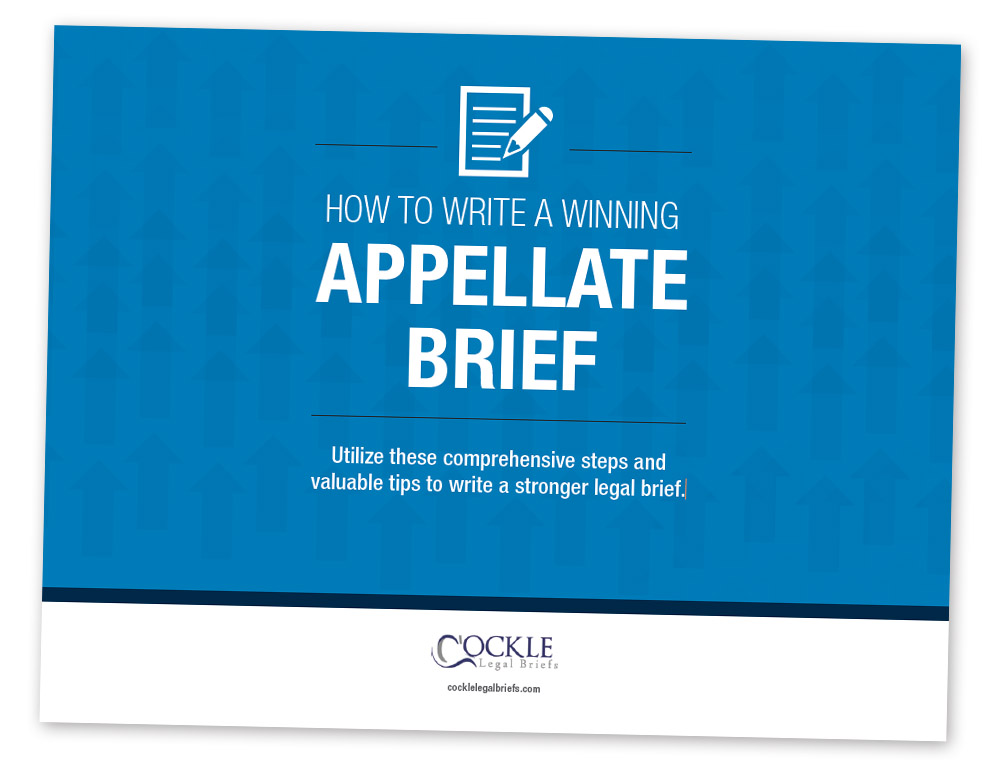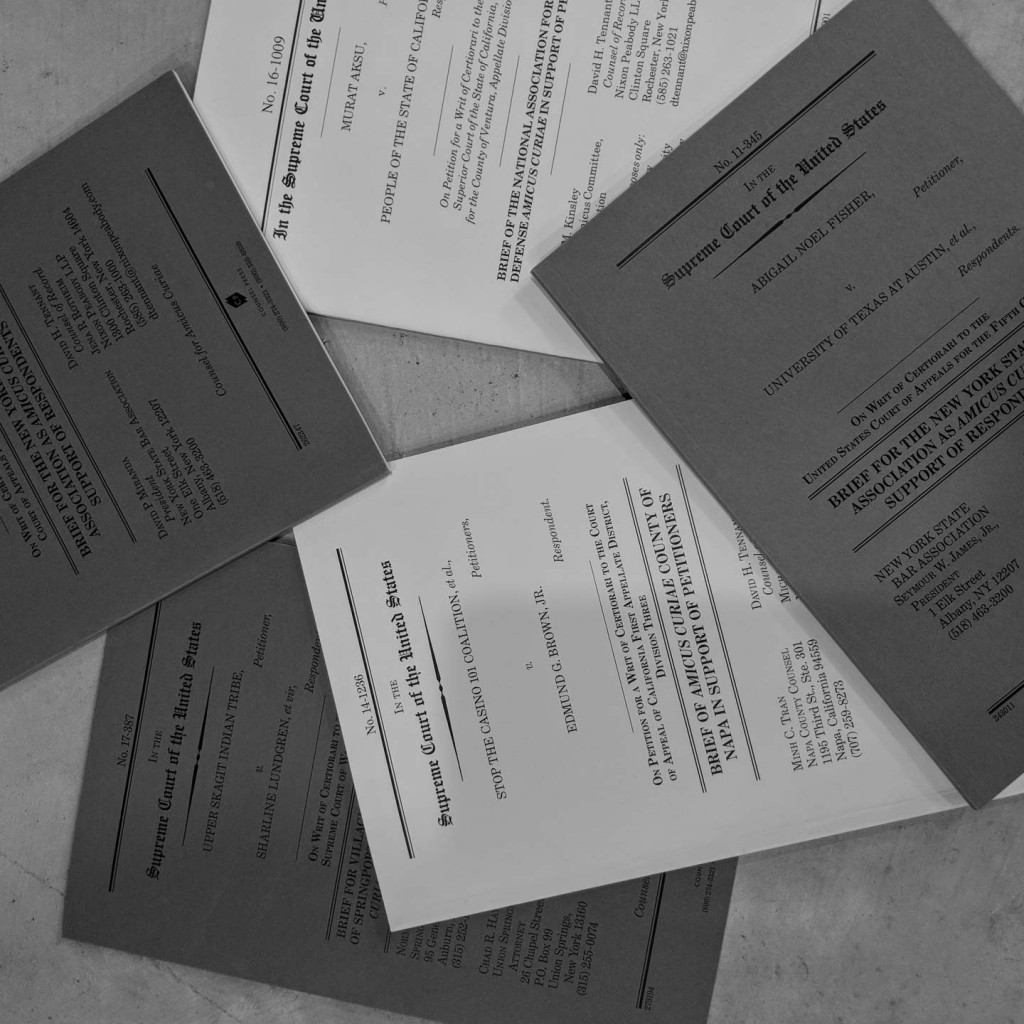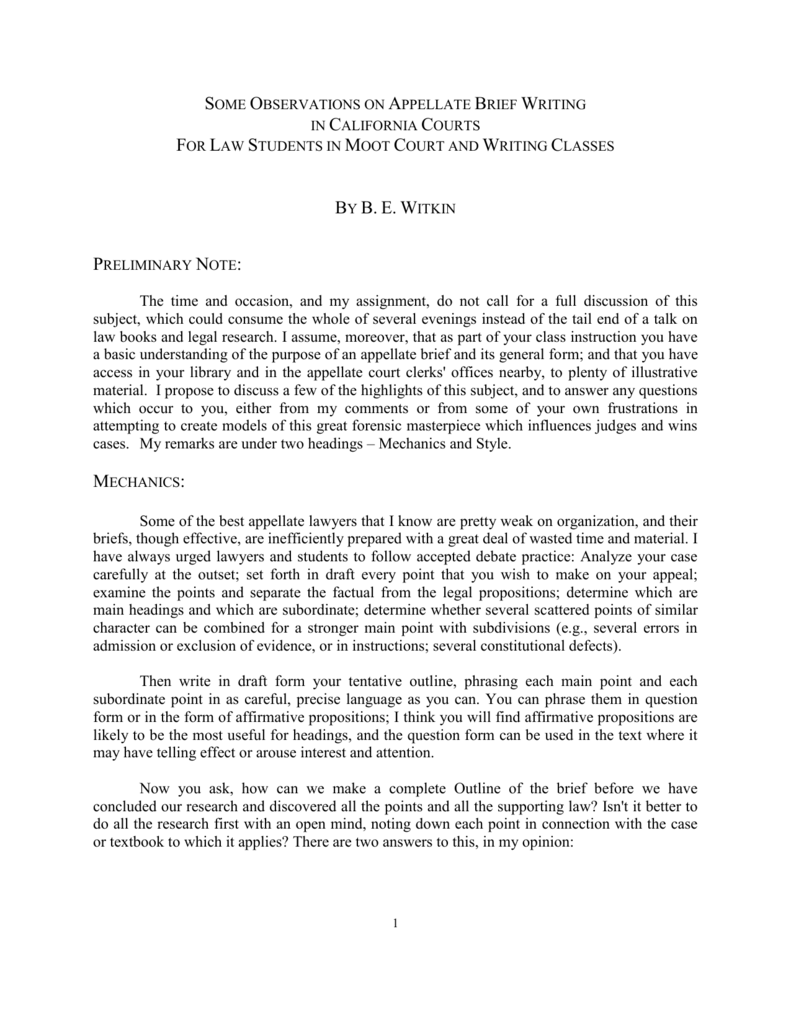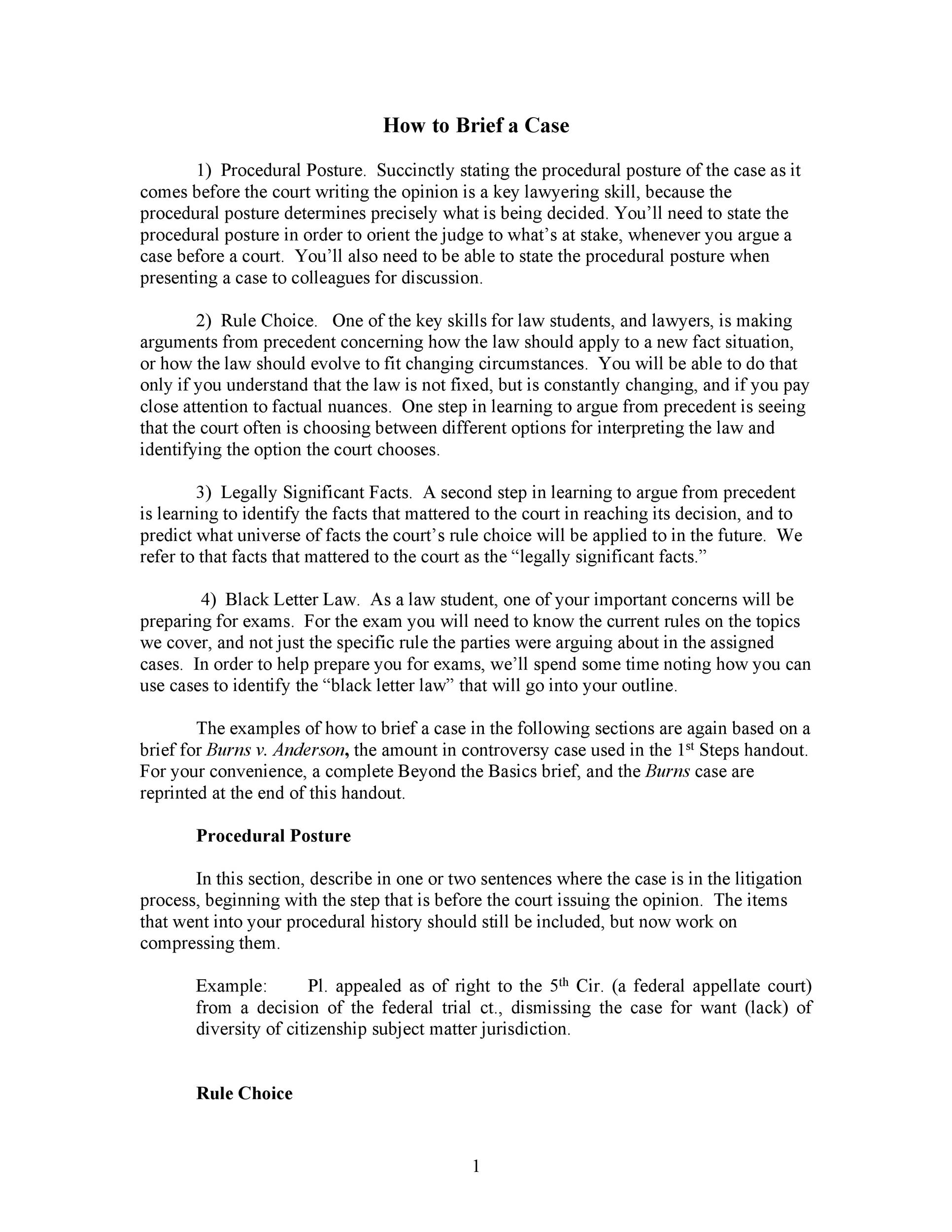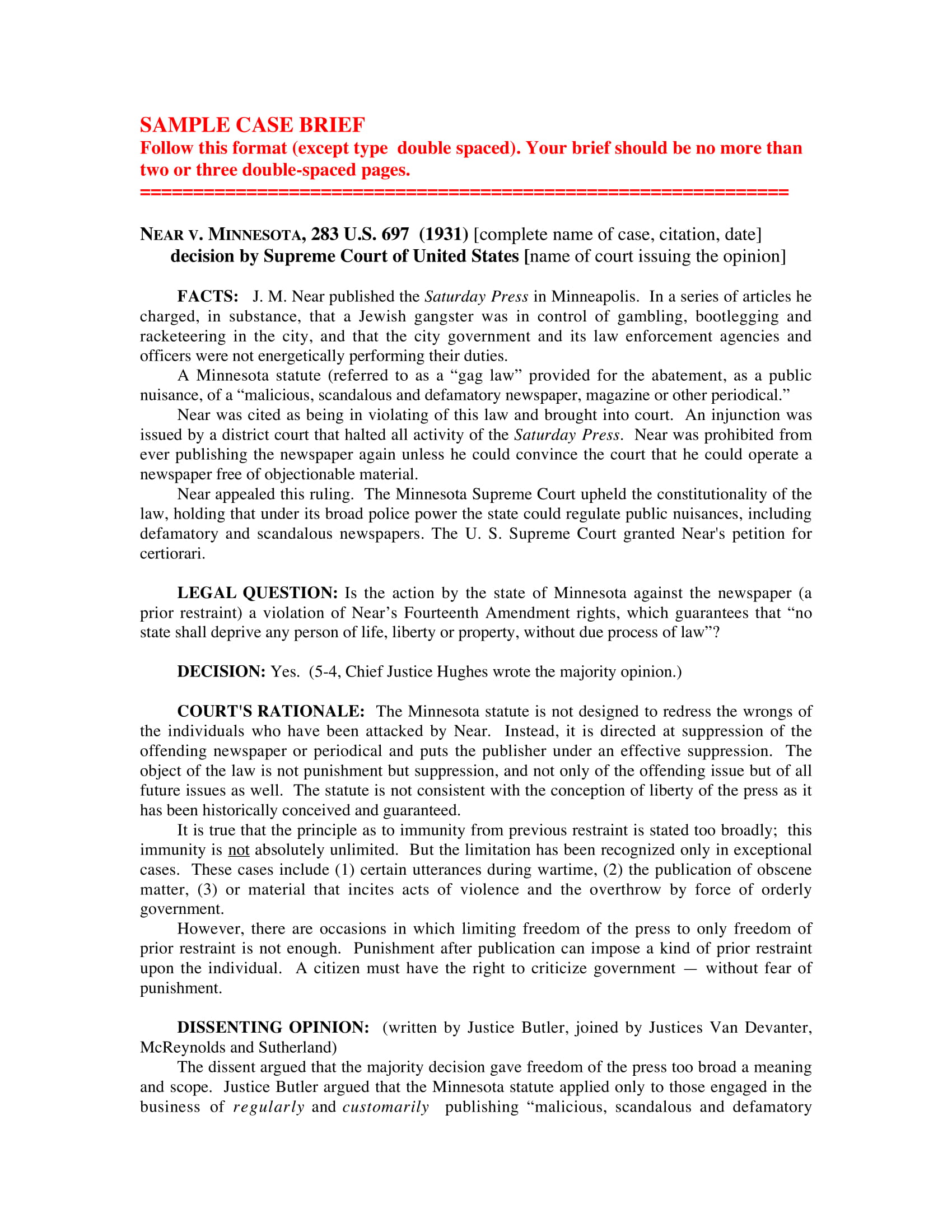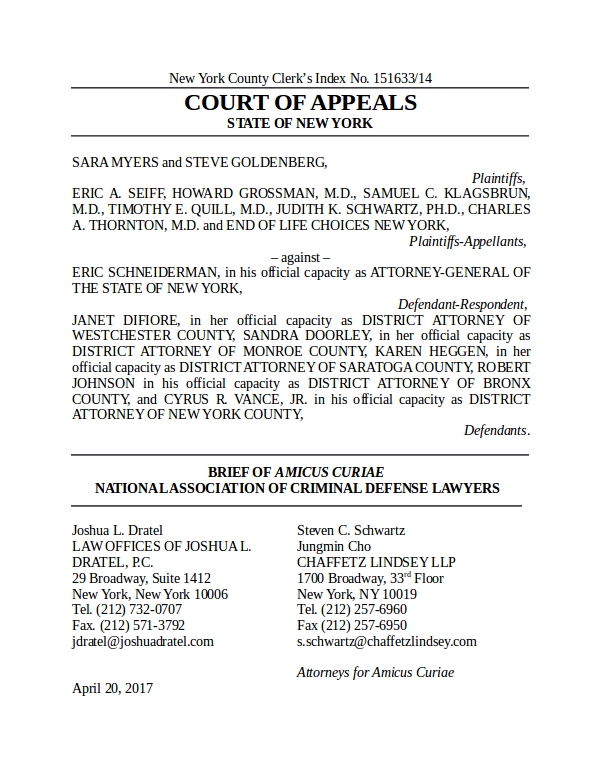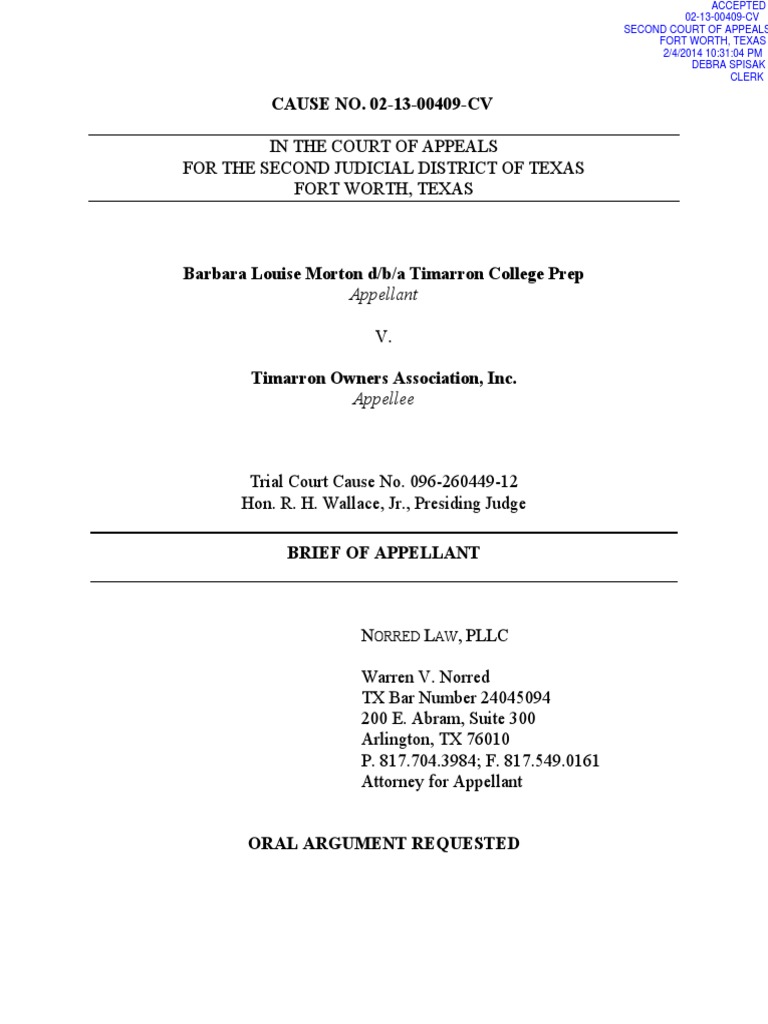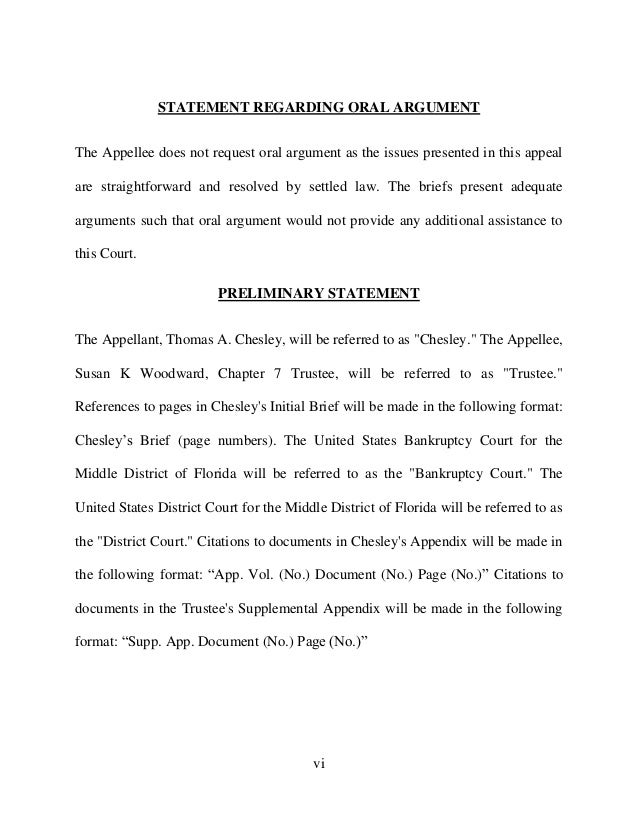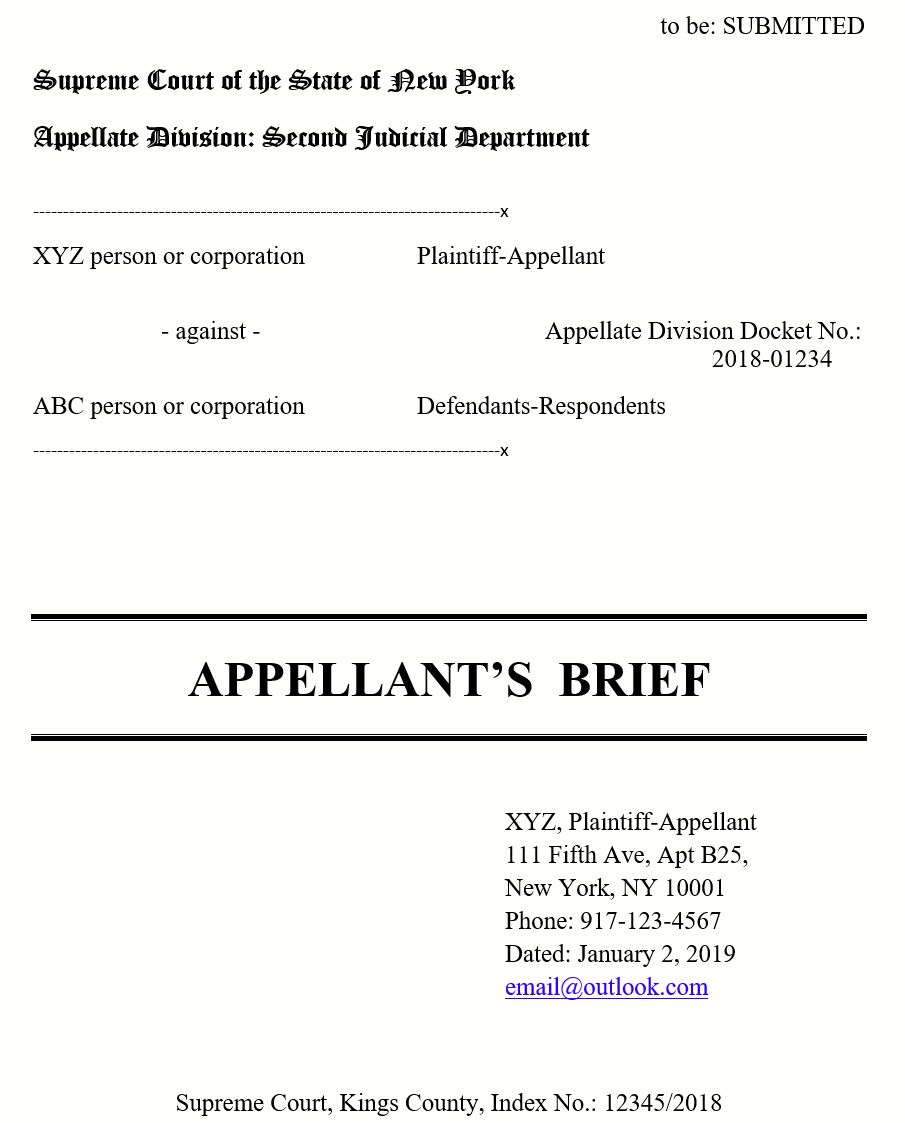Supreme Tips About How To Write An Appellate Brief
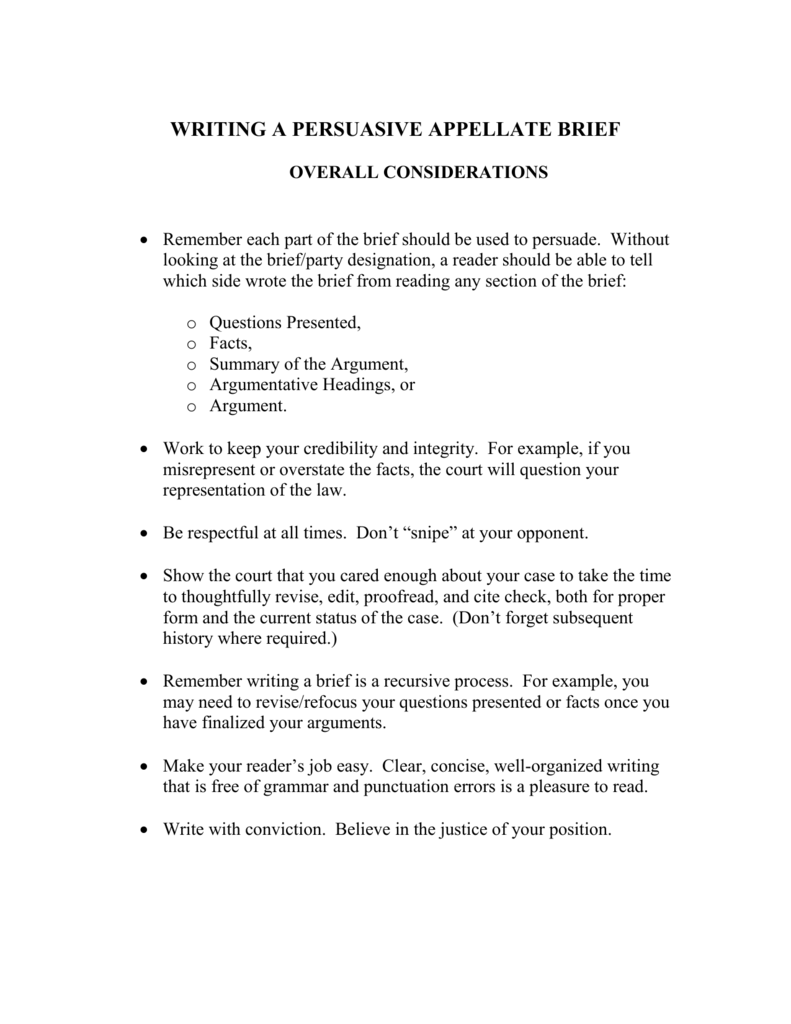
A brief, on the other hand, is written to persuade the reader that one position on the issue is the correct one.
How to write an appellate brief. Write with an eye to how your brief will be used. After all, first year legal writing classes in law school often concentrate on that skill. Appellate brief.” the statement of facts is a critical segment of an appellate brief.
The appellant, who filed the notice of appeal, will file the initial brief. Additionally, while a memo is written for another attorney or for a client,. Use successful appellate briefs as a template — don’t reinvent the wheel.
How to write, edit, and review. About how to write an effective appellate brief. Find successful/unsuccessful briefs relating to your issue and use those to frame your own brief.
Introduction this paper identifies specific tools for making a brief. An appellate brief should provide the judges with everything they need to write an opinion in your client’s favor. An effective brief is one that persuades the court.
That will help you grasp the relevant differences. A fact statement for an appellate brief uses persuasive writing techniques to highlight the facts that support your position and minimize the unhelpful facts. Utilize these comprehensive steps and valuable tips to write a stronger legal brief.
One of the most important aspects of writing an outstanding appellate brief is to frame the issue (or question presented) in a manner that makes the court want to. Abcs of good legal writing: How to write an appellate brief.
In crafting it, a writer should take a somewhat different approach from that taken when he. In most appeals, an initial brief, an answer brief, and a reply brief will be filed, in that. Tips for making a brief helpful and persuasive i.
What makes a brief more likely to achieve that goal? Therefore, striking the right balance between persuasive advocacy. Petitioning the supreme court can be a.
Moot court competitions do too. On how to craft an effective appellate brief is readily available, ranging from the general to the specific. Here are a few helpful tips:
Attorneys who rarely practice in the appellate courts may feel overwhelmed by the prospect of writing an appellate brief. A primer for lawyers on how to use fiction writing techniques to write persuasive facts sections. So, my essential advice to the appellate brief writer is to put yourself in the judge’s shoes all the way, as it were.




